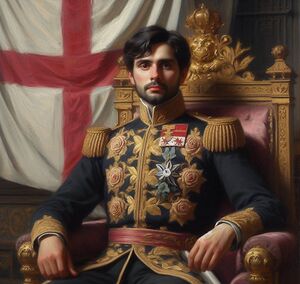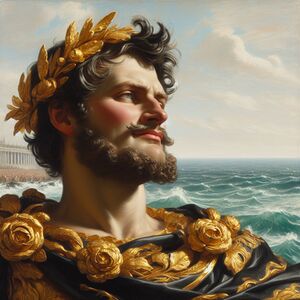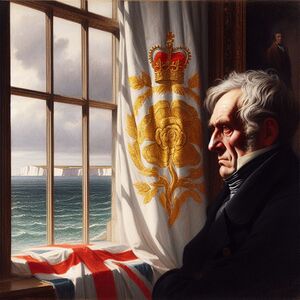Emperor Louis Viromaro: Difference between revisions
Coetzeeclan (talk | contribs) mNo edit summary |
Coetzeeclan (talk | contribs) mNo edit summary |
||
| Line 8: | Line 8: | ||
== Reign == | == Reign == | ||
The reign of Emperor Louis Viromaro started when his father, [[Emperor Alexander Viromaro|Alexander ''The Peacemaker'' Viromaro]], died in a hunting accident when Louis was 39 years of age. He immediately initiated policies that focused on expanding the powers of the Crown, whilst repealing laws and decrees of his father that gave more independence to the Six Provinces. In order to fund his ambitious private goals he | |||
== Revolution, War & Reforms == | == Revolution, War & Reforms == | ||
== Post-Abdication == | == Post-Abdication == | ||
Revision as of 19:37, 26 January 2024

Emperor Louis Viromaro, known as Louis The Builder and later Louis The Warrior during his reign, and Louis The Unfortunate after his abdication, was the Emperor of the Kythiran Empire during the last two decades of the Fourth Era. The start of his reign was considered a golden age of Kythiran absolutism, during which House Viromaro gained incredible wealth through mass taxation, the then-six provinces were losing more and more of their sovereignty, and the imperial city of Helmira received her largest expansion ever.


At the end of his reign he was partially responsible for the Dervich Incident, the following Raggisar Revolution, and most importantly the Kythiran Invasion of Imperius, the failure of which led to the Reforma Carta, the end of Viromaro absolutism, the end of the Pax Minecraftia that kept the peace in Minecraftia since the late Third Era, and his forced abdication in favour of his daughter, Empress Theodosia Viromaro. Today he lives in Fort Summerhal.
Youth
Reign
The reign of Emperor Louis Viromaro started when his father, Alexander The Peacemaker Viromaro, died in a hunting accident when Louis was 39 years of age. He immediately initiated policies that focused on expanding the powers of the Crown, whilst repealing laws and decrees of his father that gave more independence to the Six Provinces. In order to fund his ambitious private goals he
